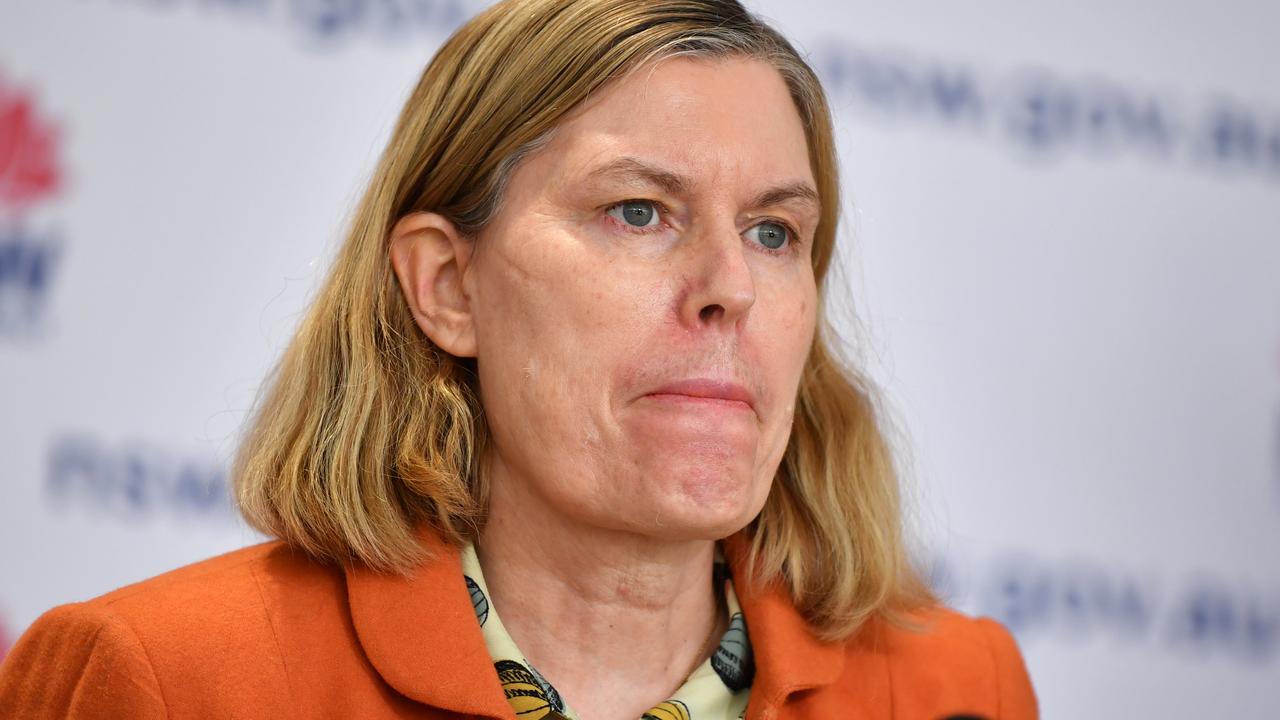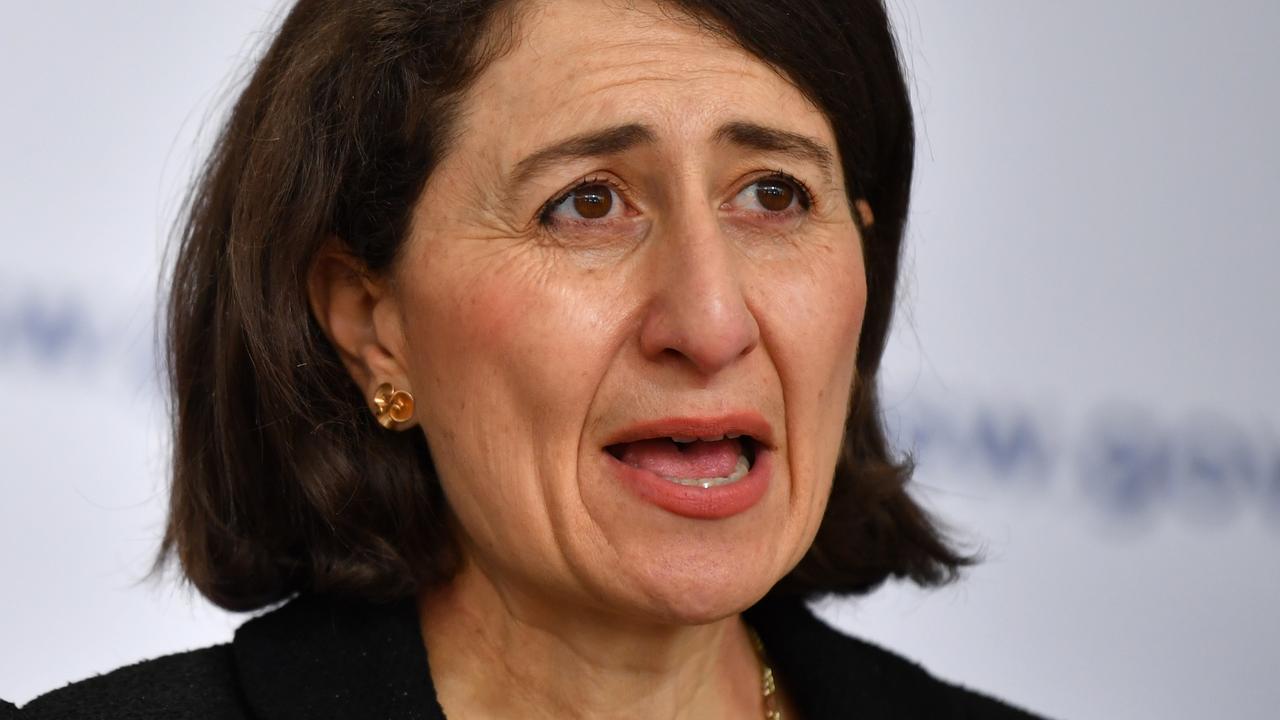Covid NSW: Spread among essential workers presents another problem for Gladys Berejiklian
People violating restrictions are responsible for much of the spread – but there’s another group as well, and the answer is more elusive.
Much of the public health messaging around New South Wales’ coronavirus outbreak has focused on people who are failing to follow the rules.
They are, clearly, a large part of the problem. But at Wednesday’s news conference, chief health officer Dr Kerry Chant highlighted another conundrum NSW is facing: the spread of Covid among essential workers.
NSW recorded 633 new cases yesterday – another daily record – 550 of whom were from southwest and western Sydney. It also reported three deaths.
Dr Chant addressed the alarming pace of the outbreak in those areas, and the two driving forces behind it.
RELATED: Kerry Chant reveals just how bad things are

“The communities of southwestern Sydney and western Sydney are resilient, and I think it’s very important to reflect on the fact that they have been experiencing some of the harshest lockdown conditions anywhere,” Dr Chant said.
“It is important to note that a lot of the essential workers who keep our economy moving – and I mean that in terms of the basic economy of putting food on the table, our essential items that we need for our life – live and work in southwestern Sydney. And they also work outside those areas of southwestern Sydey and western Sydney.
NSW Covid-19 case locations, cases and tests
Use the hamburger button below to filter results by cases, tests and time period. After selecting your option, click the menu again to show the new map
“So what we are seeing is workers from those areas doing the fantastic work that they do in supporting disabilities, supporting aged care, working in factories and cleaning and other things, going into workplaces, leading to transmission. And then transmission occurs, and then a seeding of another household.
“We also know that some people, a small proportion of people, are not perhaps taking Covid as seriously as I would like them to. And then what’s happening is they’re potentially going into multiple households, but in each of those households, you have got tens of people. And we know that household transmission for Covid is so common.”
The solution to one of these problems is obvious enough: people violating the public health restrictions should follow them instead. NSW Police have been cracking down on that front, issuing hundreds of infringement notices each day this week.
But the spread of Covid among essential workers, who simply can’t stay home, is much harder to address.
Dr Chant acknowledged the limits of her health advice.
“We do not understand the critical logistics of where we may lead to someone have food insecurity. We don’t understand, you know, the requirements on a fire brigade, who might have staff join at a particular point,” she said.
“We can comment from a public health perspective. I want to see people in settings where there are fewer people. That includes workplaces, childcare centres, we made it clear on educational settings.
“From my perspective, I want to see fewer people in settings where there are other people.”

Premier Gladys Berejiklian was deeply concerned by Wednesday’s data, which showed the NSW outbreak continuing to accelerate.
“According to the data we have, every person who has the virus is spreading it to at least more than one person,” she said.
“Now, for us to know that we have reached our peak, that can’t continue. So what the data is telling us in the last few days is that we haven’t seen the worst of it.”
Of the 633 new infections, 158 were linked to a known case or cluster – 145 were household contacts and 13 were close contacts.
The source of the other 475 cases was still being investigated.
Dr Chant said 462 people were in hospital, 77 of whom were in ICU. Twenty-five of those patients were receiving ventilation.
“We have people in their teens, in their twenties, in their thirties, in their forties, in their fifties, in their sixties, in their seventies and eighties,” said Ms Berejiklian.
“We know that for every one of those individuals in ICU, particularly those in the older age groups, they have a very real and material risk of death.”
More Coverage
Police issued 730 penalty notices in the most recent 24-hour period, 448 of which were for people being outside their home without a “good reason”.
“People clearly want to step outside of the rules and put the safety of the community at risk,” Deputy Commissioner Gary Worboys said.
“Unfortunately it only takes a small number of people doing the wrong thing to cause this amount of spread,” said the Premier.





